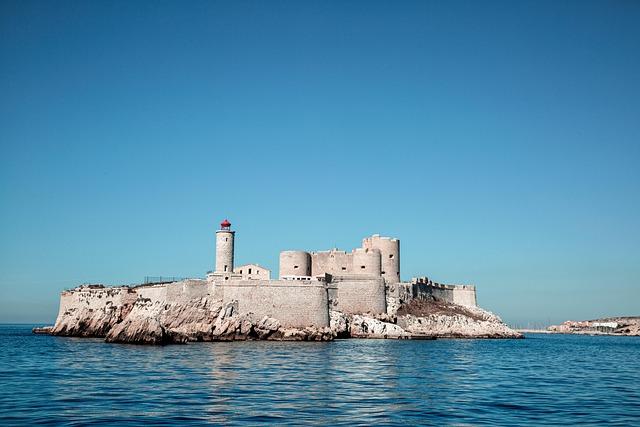Marseille, France’s second-largest city, continues to grapple with a surge in drug-related crime, posing significant challenges for local authorities and residents alike. Despite increased law enforcement efforts, the Mediterranean port city remains a hotspot for narcotics trafficking and associated violence, highlighting deep-seated social and economic issues. This article examines the ongoing battle against drug crime in Marseille, exploring the impact on the community and the strategies employed to restore safety and order.
Marseille Faces Rising Drug Crime Wave Amid Socioeconomic Challenges
Marseille, a vibrant Mediterranean port city, is increasingly entangled in a complex web of drug-related violence and crime that challenges law enforcement and local communities alike. The city’s longstanding socioeconomic disparities have contributed to an environment where illicit drug trade flourishes, fueling a surge in gang-related confrontations and public safety concerns. Authorities report a sharp rise in violent incidents connected to narcotics trafficking, particularly in disadvantaged neighborhoods struggling with unemployment and underinvestment.
The response combines intensified police operations with community-driven initiatives, but persistent issues such as limited social mobility, youth disenfranchisement, and inadequate housing continue to undermine progress. Key factors exacerbating the crisis include:
- High unemployment rates among young residents
- Social exclusion and marginalization in certain districts
- Availability of potent drugs supplied through entrenched criminal networks
- Insufficient urban development and public infrastructure
Efforts to tackle the drug trade are ongoing, with municipal authorities hoping that coordinated social programs and strengthened policing will gradually alleviate the pressures impinging on Marseille’s communities.
| Indicator | Urban Average | Marseille |
|---|---|---|
| Unemployment Rate (%) | 9.8 | 18.5 |
| Reported Drug Offenses (2023) | 450 | 1,120 |
| Median Income (€) | 28,000 | 21,300 |
Law Enforcement Deploys New Strategies to Combat Organized Drug Networks
In response to the escalating drug trade within Marseille, law enforcement agencies have intensified their efforts by incorporating advanced surveillance technologies alongside traditional policing methods. Officers are now utilizing drone reconnaissance and AI-driven data analytics to map out the intricate web of organized drug networks. These tools enable quicker identification of trafficking routes and key figures, thereby enhancing the precision and efficacy of raids.
Critical measures introduced include:
- Establishment of multi-agency task forces combining local, national, and European efforts
- Community liaison programs to encourage public reporting of suspicious activity
- Investment in undercover operations targeting high-level distributors
- Enhanced border controls to disrupt supply chains before drugs reach the city
| Strategy | Key Benefit | Current Outcome |
|---|---|---|
| Surveillance Drones | Real-time area monitoring | Reduced drug drop-offs by 30% |
| AI Data Analysis | Prediction of drug movement patterns | Identified 15 major trafficking routes |
| Multi-agency Task Forces | Coordinated investigations | Secured 20 arrests last quarter |
| Community Outreach | Increased tip-offs and cooperation | 50% rise in public reports |
Community Initiatives Aim to Address Root Causes and Support At-Risk Youth
Local organizations and volunteers in Marseille are ramping up efforts to intervene early in the lives of vulnerable youth, focusing on prevention rather than punishment. Programs emphasize mentorship, education, and access to recreational activities as critical tools to redirect young people away from drug-related crime. By collaborating with schools, social services, and law enforcement, these initiatives seek to create a safety net that addresses underlying issues such as poverty, family instability, and lack of opportunities.
Several community centers have introduced tailored workshops and support groups that equip at-risk youth with practical skills and emotional resilience. Key components include:
- After-school tutoring to improve academic outcomes and self-esteem
- Job training programs linking participants with local businesses
- Conflict resolution and counseling to break cycles of violence
| Initiative | Target Group | Primary Goal |
|---|---|---|
| Youth Mentorship | 14-18 years | Build positive role models |
| Vocational Training | 16-24 years | Enhance employability |
| Community Sports | 10-16 years | Promote teamwork and discipline |
Experts Call for Comprehensive Policy Reform and Enhanced Cross-Border Cooperation
Authorities and policymakers emphasize that tackling Marseille’s deep-rooted drug issue requires a multi-faceted approach beyond local law enforcement efforts. Experts stress the need for reform across various policy areas, including criminal justice, social welfare, and urban development, arguing that piecemeal actions have so far failed to stem the tide of narcotics trafficking and related violence.
Key recommendations include:
- Stronger cross-border collaboration with neighboring countries to dismantle transnational drug networks.
- Revamping social programs to address poverty and lack of education in vulnerable communities.
- Improved intelligence sharing between municipal, national, and European agencies.
- Legal reforms that facilitate faster prosecutions and enhanced penalties for organized crime figures.
| Reform Area | Proposed Action | Expected Impact |
|---|---|---|
| Law Enforcement | Joint task forces with EU partners | Disrupt trafficking networks effectively |
| Social Policy | Community engagement and education | Reduce drug dependency rates |
| Judiciary | Streamlined legal procedures | Quicker convictions and deterrence |
To Wrap It Up
As Marseille continues to grapple with entrenched drug-related violence, authorities face an uphill battle to restore safety and order in the city’s most affected neighborhoods. Despite ongoing police operations and social initiatives, the persistence of organized crime underscores the complexity of the challenge. Moving forward, a coordinated approach involving law enforcement, community engagement, and social support will be essential to curbing the drug trade and rebuilding public trust in Marseille.




